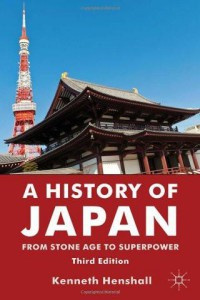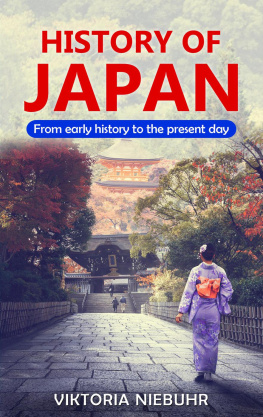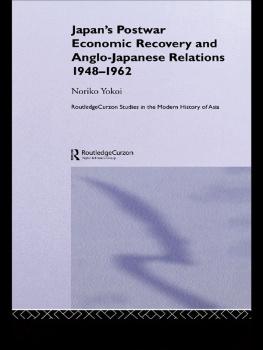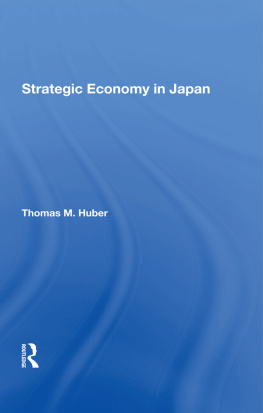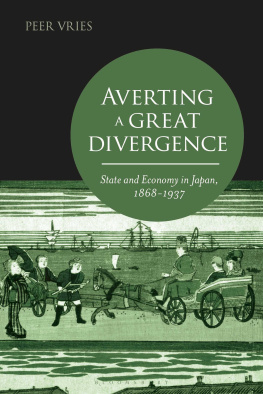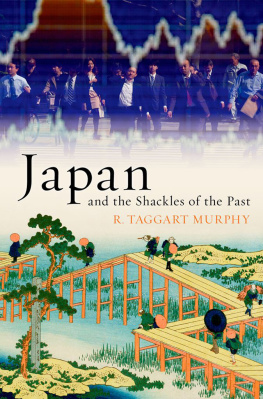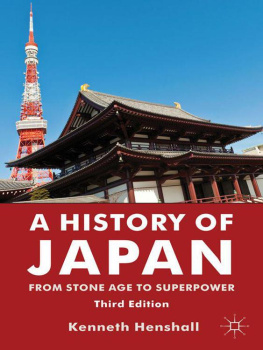A History of Japan
Also by Kenneth G. Henshall
A GUIDE TO REMEMBERING JAPANESE CHARACTERS
COUNTRY TEACHER BY TAYAMA KATAI
DIMENSIONS OF JAPANESE SOCIETY: Gender, Margins and Mainstream
LITERARY LIFE IN TOKYO 18851915
THE LAST WAR OF EMPIRES: Japan and the Pacific War 19411945 (co-author with Laurie Barber)
THE QUILT AND OTHER STORIES BY TAYAMA KATAI
A GUIDE TO READING AND WRITING JAPANESE (co-editor with Christopher Seeley and Henk de Groot)
ETHNIC IDENTITIES AND LINGUISTIC EXPRESSIONS (co-editor with Lin Jinghua and Xiao Hong)
FOLLY AND FORTUNE IN EARLY BRITISH HISTORY: From Caesar to the Normans
A H ISTORY OF J APAN: F ROM S TONE A GE TO S UPERPOWER
3rd Edition
K ENNETH G. H ENSHALL
Professor of Japanese Studies, University of Canterbury, Christchurch, New Zealand


Kenneth G. Henshall 1999, 2004, 2012
All rights reserved. No reproduction, copy or transmission of this publication may be made without written permission.
No portion of this publication may be reproduced, copied or transmitted save with written permission or in accordance with the provisions of the Copyright, Designs and Patents Act 1988, or under the terms of any licence permitting limited copying issued by the Copyright Licensing Agency, Saffron House, 610 Kirby Street, London EC1N 8TS.
Any person who does any unauthorized act in relation to this publication may be liable to criminal prosecution and civil claims for damages.
The author has asserted his right to be identified as the author of this work in accordance with the Copyright, Designs and Patents Act 1988.
First edition published 1999
Second edition published 2004
Third edition published 2012 by
PALGRAVE MACMILLAN
Palgrave Macmillan in the UK is an imprint of Macmillan Publishers Limited, registered in England, company number 785998, of Houndmills, Basingstoke, Hampshire RG21 6XS.
Palgrave Macmillan in the US is a division of St Martins Press LLC, 175 Fifth Avenue, New York, NY 10010.
Palgrave Macmillan is the global academic imprint of the above companies and has companies and representatives throughout the world.
Palgrave and Macmillan are registered trademarks in the United States, the United Kingdom, Europe and other countries
ISBN: 9780230346611 hardback
ISBN: 9780230346628 paperback
This book is printed on paper suitable for recycling and made from fully managed and sustained forest sources. Logging, pulping and manufacturing processes are expected to conform to the environmental regulations of the country of origin.
A catalogue record for this book is available from the British Library.
A catalog record for this book is available from the Library of Congress.
10 9 8 7 6 5 4 3 2 1
21 20 19 18 17 16 15 14 13 12
Printed and bound in Great Britain by
CPI Antony Rowe, Chippenham and Eastbourne
C ONTENTS
L IST OF T ABLES
P REFACE
Aims and Sources
The main aim of this book is to tell the story of Japan. The story needs to be told from the beginning. It needs to be told in a balanced and comprehensive way but without becoming cluttered, and in a way that makes Japans history accessible and understandable without becoming simplistic or superficial. Many books on Japans history are encyclopedic in nature and have so much detail it becomes difficult to see overall trends. Others tend to focus narrowly on a theme and omit background important for a balanced perspective. Still others tend to start Japans story in modern times, omitting important earlier background.
Such books all have their merits, but they do tend to daunt the non-specialist. In this day and age, when so many people are interested in Japan and particularly its rise to superpower status, this seems a pity. General readers, students, and scholars in other specialist fields should all have easier access to Japans fascinating and instructive history.
Accessibility, therefore, has been a major consideration in the writing of this book. A related consideration has been to encourage readers to follow up particular points of interest to them. For these reasons I have deliberately confined my sources to those in the English language, and I have deliberately and very frequently given references with a view to readers following these up if they wish. They will not have to read Japanese to do so.
My own knowledge of Japans history has been built up over many years from both Japanese and English sources, but not everyone can afford to spend ten years or so learning to read Japanese. When I started studying Japanese, some thirty years ago, an inability to read the script was a major barrier to acquiring any sort of authoritative knowledge of the country. This is no longer so. Nowadays there is a vast amount of material available in English, not only works written originally in English but translations of just about every major Japanese work. As a result, it is perfectly possible for the English-language reader to gain a very informed understanding even of detailed matters about Japan. Part of my aim in this book is to draw the attention of a wider reading public to this wealth of available material. In fact, there is so much available that I simply cannot touch upon all of it.
Japans story is a fascinating one. It has elements of adventure, of mystery and intrigue, and of controversy, and I include these in the story in these pages. It is important for all readers, even if they are not academics, to know what areas and events in Japans history are still unclear and uncertain.
Many readers will be particularly interested in how Japan became a superpower. Japans achievements are the result of both circumstance itself and Japans response to circumstance, a response-pattern often based on deep-rooted values and practices. I do not let these values and practices dominate my account of Japans history, but I do highlight them and list them in the review at the end of each part, as well as writing my conclusion around them.
The periodic reviews are intended to help accessibility. Japans history is so long and rich that it is important to stop from time to time and look back, to try to pick out major trends and events. The more we can digest of Japans history, the greater our reward, for it is a history well worth knowing.
A CKNOWLEDGEMENTS
I am particularly indebted to Ken Coates, formerly Professor of History at the University of Waikato, for his insightful comments and valuable suggestions about the book as a whole. A number of other scholars and individuals around the world have commented on drafts of various sections of this book or advised on specific points, and I am grateful to them for their advice. They include Laurie Barber, Gina Barnes, Darrin Findlay, Steven Lim, Derek Massarella, Tsutomu Nishigaki, Yoshio Okamoto, Ian Pool, Ray Richards, Eric Thompson, Tadashi Uda, and Brian Whitley. The shortcomings of the final product are in no way a reflection of their advice. Nor are any conclusions drawn or views asserted necessarily a reflection of their own positions.
I am grateful to my colleague Roy Starrs for letting me have a preview manuscript of his forthcoming book on modernism and Japanese culture. I am also grateful to the staff at Palgrave Macmillan especially Tim Farmiloe, Vicki Johnson, Aruna Vasudevan, Luciana OFlaherty, Michael Strang, and Ruth Ireland for their guidance and support; to the University of Waikato and the University of Canterbury for funding various overseas study trips, allowing me leave, and for buying so many books for me; and to my family and colleagues for their understanding.
Next page
